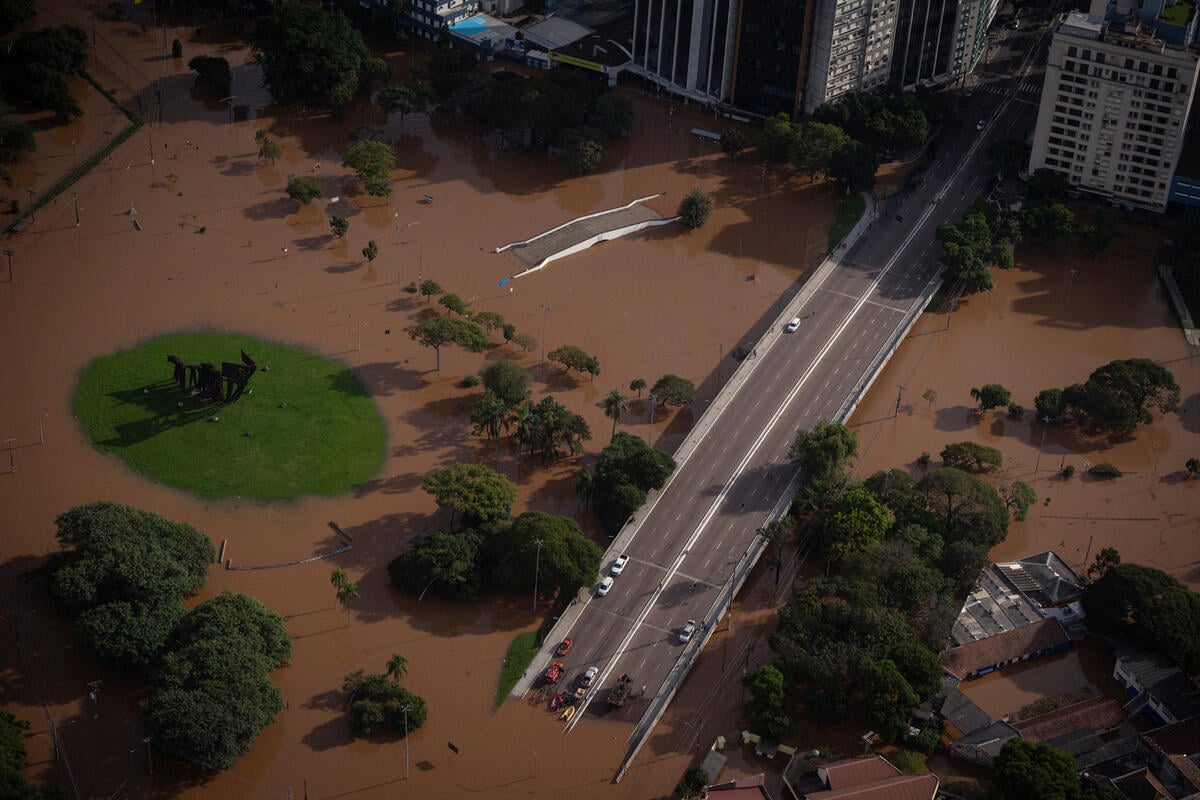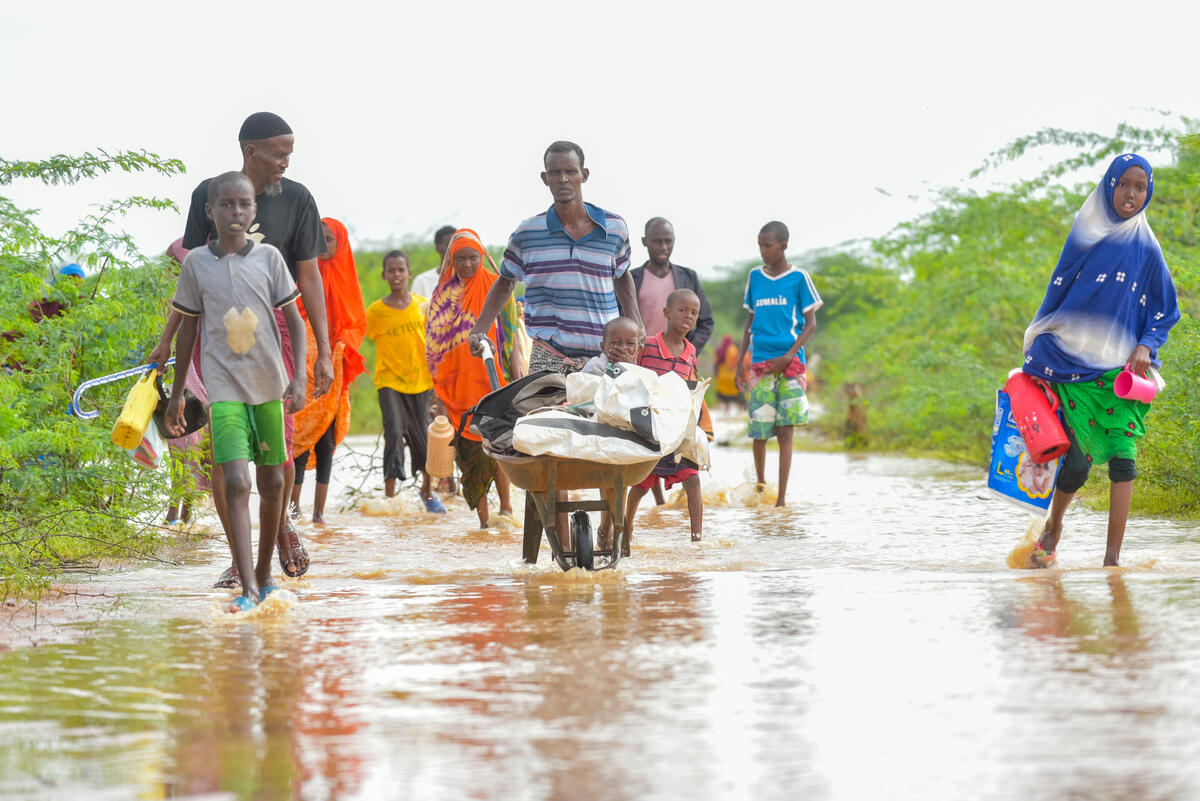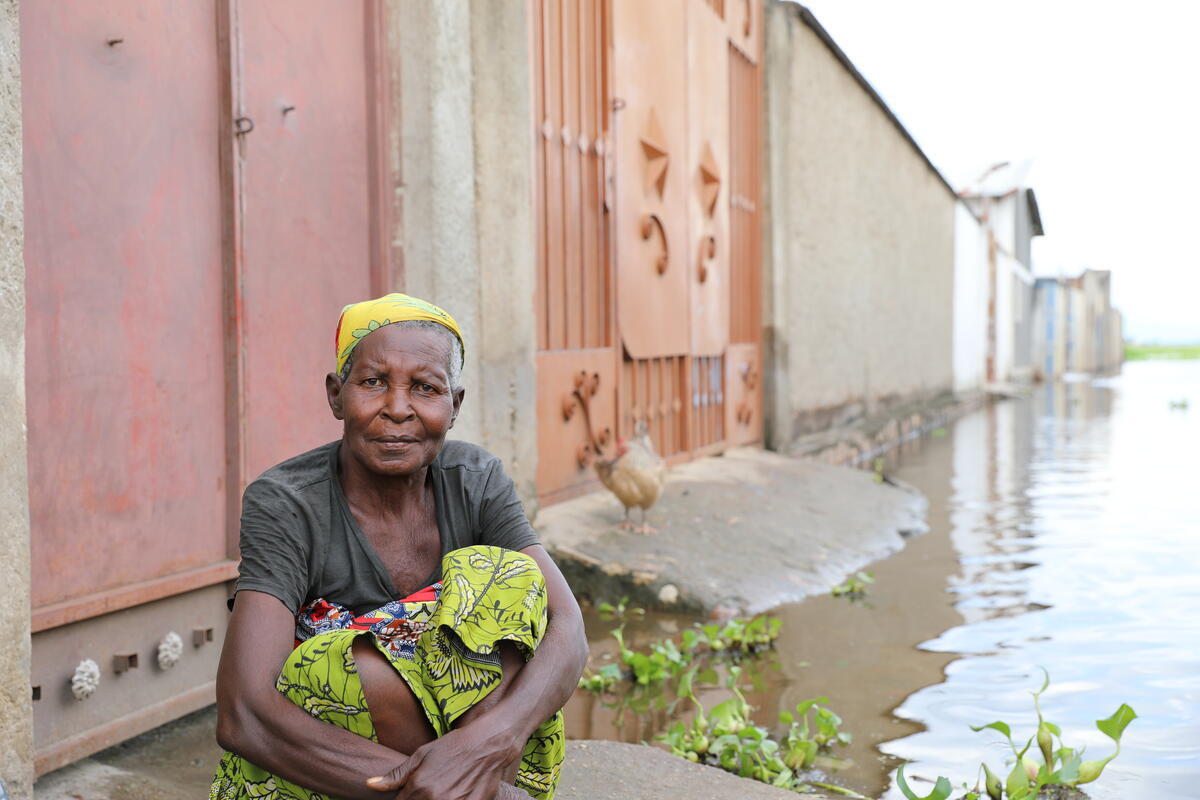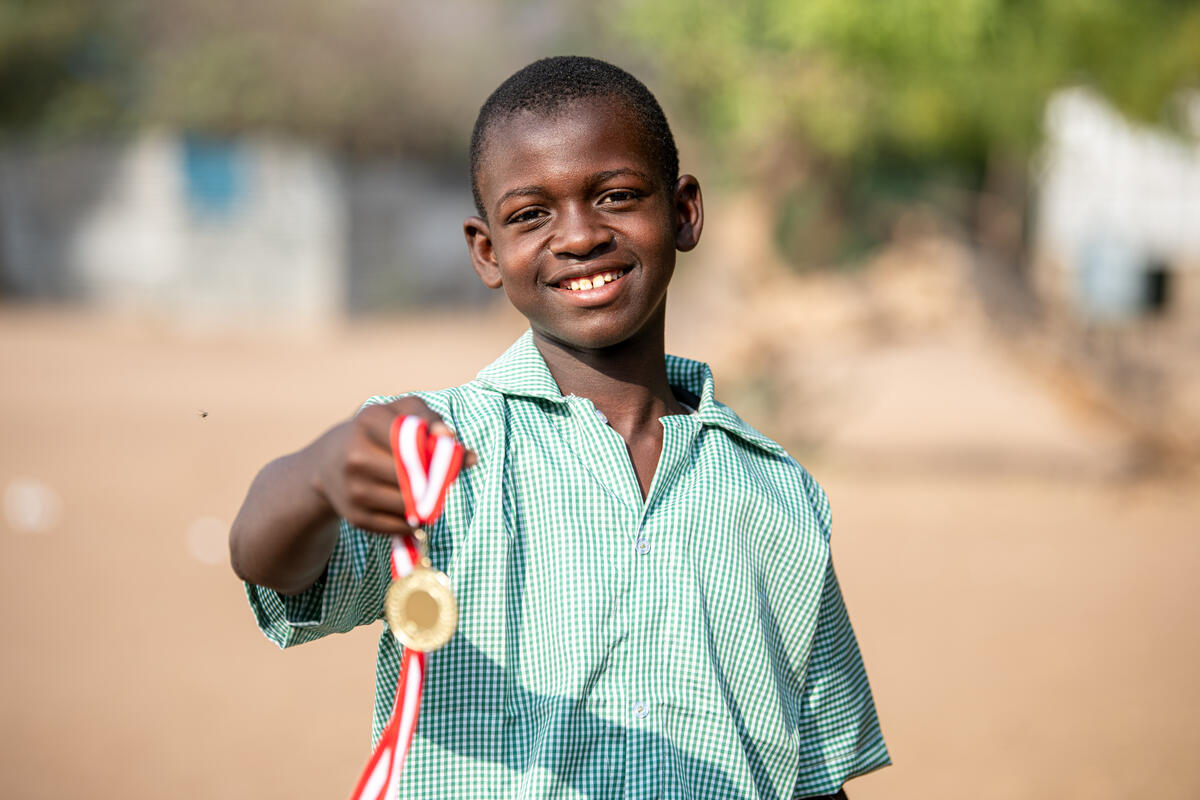Somalia: Thousands flee latest fighing in capital
Somalia: Thousands flee latest fighing in capital
At least 24 people have died and more than 12,000 have been displaced by the latest fighting in Mogadishu. This brings the number of people to have fled violence in the Somali capital since the beginning of February to an estimated 57,000. These figures have been compiled by UNHCR based on information provided by non-governmental organisations working in Somalia.
There has been a steady outflow from Mogadishu since the beginning of February, when armed groups clashed with forces of the Transitional Federal Government (TFG), which seized the capital in December from the Islamic Courts Union. Mortar rounds and other fire has since killed many civilians in residential areas and displaced people settlements.
The exodus intensified last week and the TFG told civilians to leave certain areas of the city, apparently so that it could step up its offensive against the insurgents. UNHCR's local partners in Mogadishu last week said that they saw hundreds of people waiting anxiously in crowded bus stations or searching for truck drivers to take them out of the city. Others had packed their meagre belongings onto donkey-drawn carts and headed for safety.
Earlier this month, we flew relief items to the Somali capital on two occasions, bringing 4,500 blankets, 1,800 jerry cans, 900 plastic sheets and 900 kitchen sets.
This new displacement is further aggravating an already stretched humanitarian situation, as UNHCR and the other aid agencies have no access to Mogadishu and the surrounding regions due to the rampant insecurity. There are currently an estimated 400,000 internally displaced people in Somalia and tens of thousands of others have fled to neighbouring countries.
Most people leaving Mogadishu have headed south to the neighbouring Lower Shabelle region. Many of the new arrivals are destitute women and children who lack clan support and access to humanitarian aid, including treatment for prevalent health problems such as diarrhoea. According to our partners, they are hungry and face harassment from thugs. Many worry about their children not being able to go to school. Those who can afford it are looking for a house to rent, but most simply find shelter under trees.
Others have travelled more than 700 kilometres north-east to Galkayo, a jarring five-day journey by truck during which they risk being robbed, raped, abducted or killed. Since the beginning of March, some 2,250 people have undertaken this dangerous journey from the Somali capital.
Those arriving are often destitute and depend on other people to support them. This puts further pressure on the limited capacity of Galkayo, in the autonomous region of Puntland, to cope with already up to 25,000 internally displaced people. UNHCR has been present in Galkayo since January and has distributed some basic relief items such as plastic sheets.







